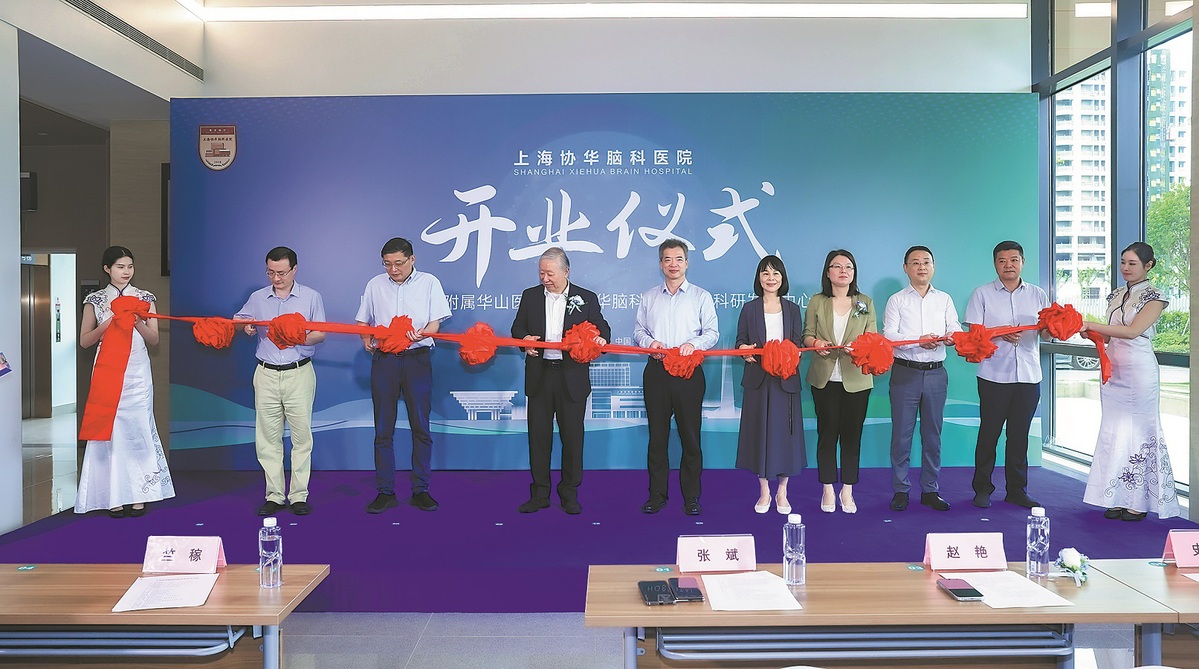
Shanghai Xiehua Brain Hospital funded by United States' investment firm Bain Capital holds its opening ceremony in Shanghai in July, 2024. [Photo provided to China Daily]
Shanghai announced on Wednesday to encourage wholly foreign-invested hospitals to be established in the municipality's key economic zones, areas where the biopharmaceutical industry clusters, and downtown districts with a high concentration of expat residents.
Each of such areas welcomes a maximum of two foreign-owned hospitals, and the key economic zones include the free trade zone, the Lingang new area, the Hongqiao business district, and the eastern hub international business cooperation zone.
According to a document unveiled on the website of the municipal government, the pilot program was initiated to deepen opening-up in the field of foreign-owned hospitals, to enhance the diversity of healthcare services, and improve the city's business environment.
Shanghai's move was a response to the national-level initiative released in late November, which allowed wholly foreign-invested hospitals in Beijing, Shanghai, Guangzhou and Shenzhen in Guangdong province, and five other cities or regions.
According to the Shanghai document, foreign investors seeking to establish wholly foreign-owned hospitals are required to demonstrate internationally advanced hospital management concepts, models and service standards.
They must also provide cutting-edge medical technologies and equipment at the international level and can complement or enhance the local healthcare service capabilities, medical technologies, and medical facilities to expand the diversity of service offerings.
The categories of such foreign-owned hospitals include general hospitals, specialized hospitals, and rehabilitation hospitals, all of which will be designated as tertiary medical institutions.
However, such foreign investors are not allowed to establish hospitals dedicated to psychiatric diseases, infectious diseases, hematology, TCM, integrating TCM and Western medicine, and those specializing in minority ethnic medical practices.
Moreover, such wholly foreign-invested hospitals are not permitted to engage in medical and ethical activities with high risk, including organ transplantation, assisted reproductive technologies, prenatal screening and diagnosis, inpatient psychiatric treatment and experimental treatments using tumor cell therapy.
The Shanghai document was jointly formulated and released by the Shanghai Municipal Health Commission, the Shanghai Municipal Commission of Commerce, the Shanghai Administration of Traditional Chinese Medicine, and the Shanghai Municipal Bureau for Disease Control and Prevention.